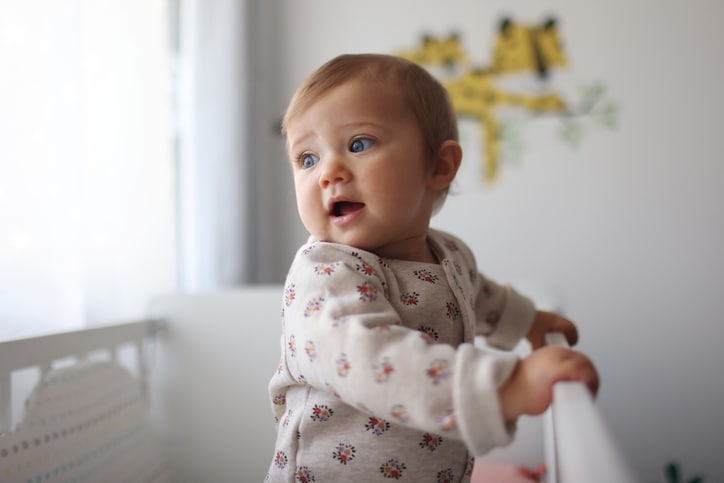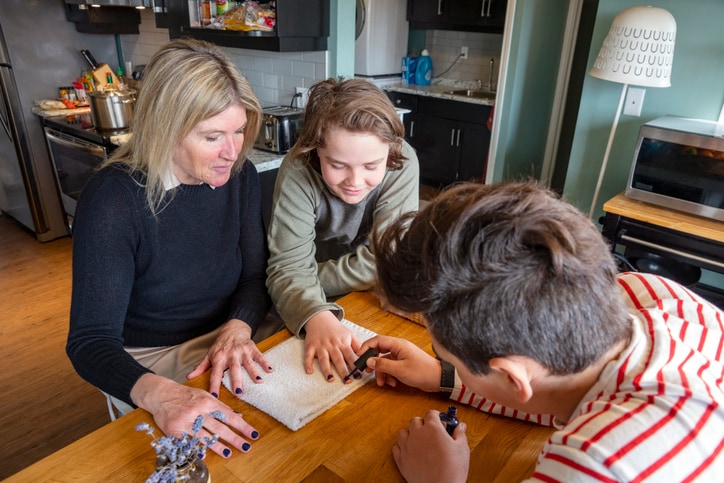It’s no secret that many parents are feeling burned out. Between the demands of work, school and home life, moms and dads can never seem to catch a break, but a new 42-country study suggests that parental burnout could be driven by more than just the demands of the daily grind. How burned out you’re feeling could actually have something to do with where you live.
Researchers surveyed 17,409 parents from 42 countries and found that parents in Western countries report higher levels of burnout and stress than parents in other parts of the world. In the study, published in the journal Affective Science, burnout is defined as “a condition characterized by intense exhaustion related to parenting, emotional distancing from one’s children, a loss of pleasure and efficacy in one’s parental role and a contrast between previous and current parental self.”
Parents from the United States, France and Belgium reported the highest rates of burnout, while parents in places like Pakistan, Ecuador and China reported the lowest rates. The main issue fueling parents’ burnout? Their country’s focus on individualism, which is described in the study as a “social framework in which individuals are expected to take care of only themselves and their immediate families.”
In addition to interviewing parents, researchers also ranked each country based on how much its society prioritizes this sense of self-reliance and independence. Countries with a greater focus on community tended to have less burnout among parents, while highly individualistic countries, like the U.S., had more. Researchers gave the U.S. an individualism score of 90 out of a possible 100 points. By comparison, countries with the lowest rates of burnout typically had individualism scores under 20.
U.S. parents typically receive very little support in their communities and workplaces, so it makes sense that parents who live here might struggle more with feelings of isolation and overwhelm.
In 2019, the United Nations International Children’s Emergency Fund (UNICEF) released an evaluation of the family friendly policies of the 41 wealthiest nations in the world. The U.S. was listed as the only country that does not offer federally mandated maternity or family leave and was one of only 10 that do not offer any form of universal preschool or child care.
While the results of the burnout study were released in March 2021, participants were surveyed before the COVID-19 pandemic began. It’s safe to say that parenting through a pandemic has likely exacerbated feelings of stress and burnout for most moms and dads.
So, what will finally solve the problem? Researchers say the study points to the need for struggling parents to receive more help and support. And, in the case of parental burnout, “help” isn’t just grandma taking the kids for a few hours or mom finally getting a shower and calling it “self-care.” As the study authors write, “The much lower prevalence of parental burnout in collectivistic countries suggests that strengthening the social network of mutual aid and solidarity around families might well help to decrease the prevalence of parental burnout in individualistic countries.”
In other words, it will take collective action and support at the community level to help parents dig their way out of the stress, exhaustion and overwhelm they’re feeling.
As hard as it is to be a parent, it’s even harder to admit when you’re suffering from burnout. As parents, we prioritize our kids, and we’re used to sticking to our routines and plastering on a smile because it’s what we believe is best for them. But this study is an important wake up call to leaders, bosses and other policy makers that parents are not alright. We were exhausted before the pandemic, we’ll still be exhausted after it and what moms and dads really need are fundamental changes to the way society shows up for the needs of children and families.






